- Home
- Sam Savage
An Orphanage of Dreams Page 10
An Orphanage of Dreams Read online
Page 10
wiggle into his half-sleeping head.
He wishes he had a mindlid.
And now another familiar tread.
No baleful mailman this.
The lighter, brighter steps of Thelma
are at the door, and through,
and across the room to him.
She looms above.
His eyes will open to behold.
O Thelma.
Has she brought bread?
Once she lavished
sex and praise upon him.
Now she returns
bearing, he hopes, money.
Kiffler needs some.
To sit with coffee,
pastry, perhaps a book
on a cafe terrace
and so stalk the world in spring.
That a need so small
should loom so huge
amazes Kiffler. Amazes also
that gentle, lovely Thelma
should labor so for such as he.
Baffled Kiffler doesn’t get it.
When, Thelma asks, as she peels
away two lovely green ones,
will he face up to his responsibilities.
He ought to cry out, “Never, never, never, will I,”
but answers instead, “Tomorrow.”
(And means it.)
9. Kiffler Treed
Bent beneath a long metal ladder,
there is Kiffler trudging across the lawn,
an ant bearing a wasp wing.
The summer trees are full of leaves.
Kiffler, below, has seen a better world up there,
a tranquil peace house afloat in the treetops.
He wants to go live in it.
Though he does not like ladders
he scurries up.
The vast maple waves its leaves gently to him
as he climbs.
His ant-heart thumps.
Now that he is in the branches
he starts to feel better.
Looking down, he is feeling high.
He climbs from limb to limb.
He is really way up there.
He perches near the peak.
Never mind how it sways,
he is going to make a roost of it.
But what’s happening now?
Looks like his arms have gone furry.
Chest and face too.
Perplexed, he scratches a hairy ear.
His hand is huge.
Poor hopeful Kiff,
he imagines he’s beginning a new life story.
He wants to call it From Ant to Ape.
When he left, the news of the earth was grim.
High above the demented present
Kiffler is cutting loose from his species.
What will he miss?
Thelma and Molly, his sofa;
movies, his dog Vachel
cigarettes; wearing a hat when it’s cold;
cappuccino on Cafe Zoma’s terrace.
Kiffler is getting ready to rough it.
Now Thelma and Molly are standing beneath him in the yard.
They are quite low and stubby.
Kiffler is so high he can’t tell if they are pointing or waving.
From within his greeny nook
he peers out over the rooftops.
He has never seen the neighborhood
from this angle before. He likes it better.
Meanwhile
below him on the lawn
dwarfs are multiplying. They are wearing
their faces on top of their heads.
Friends and relations, all the neighbors,
his brother Bill, his sister Maud.
That’s too much of many for Kiffler.
They are moving into a huddle.
Uh oh. It might be a family council.
Put a cork in that!
Kiffler hurls his shoes down,
first one, then the other.
The dwarfs unbunch and scatter,
then regroup out of range.
They are hatching plans to get him down.
Kiffler studies his new feet.
He is up there
because it looked so nice from below
and he couldn’t think where else.
Now he discovers
that sitting on branches is not comfortable.
The life of an ape-man
has turned out to be uncomfortable and boring.
(There goes another illusion.
How many more can Kiffler have?
Zillions, probably.)
The sirens arrive, trailing red trucks,
to die away at the curb. At the end
they give off a deep, very final moan.
If Kiffler could open his mouth and say that
everyone would understand.
Firemen swarm below.
Big-hatted, short-legged, barrel-chested,
they are running around with their fireman equipment.
DWARF ARMY RESCUES ORANGUTAN.
But why aren’t they setting up any ladders?
The fire captain is explaining to Thelma:
When she called, they thought “Kiffler” was a cat.
They don’t rescue lunatics.
They have a special team for that.
Coffee House Press began as a small letterpress operation in 1972 and has grown into an internationally renowned nonprofit publisher of literary fiction, essay, poetry, and other work that doesn’t fit neatly into genre categories.
Coffee House is both a publisher and an arts organization. Through our Books in Action program and publications, we’ve become interdisciplinary collaborators and incubators for new work and audience experiences. Our vision for the future is one where a publisher is a catalyst and connector.
Funder Acknowledgments
Coffee House Press is an internationally renowned independent book publisher and arts nonprofit based in Minneapolis, MN; through its literary publications and Books in Action program, Coffee House acts as a catalyst and connector—between authors and readers, ideas and resources, creativity and community, inspiration and action.
Coffee House Press books are made possible through the generous support of grants and donations from corporations, state and federal grant programs, family foundations, and the many individuals who believe in the transformational power of literature. This activity is made possible by the voters of Minnesota through a Minnesota State Arts Board Operating Support grant, thanks to the legislative appropriation from the Arts and Cultural Heritage Fund. Coffee House also receives major operating support from the Amazon Literary Partnership, the Jerome Foundation, McKnight Foundation, Target Foundation, and the National Endowment for the Arts (NEA). To find out more about how NEA grants impact individuals and communities, visit www.arts.gov.
Coffee House Press receives additional support from the Elmer L. & Eleanor J. Andersen Foundation; the David & Mary Anderson Family Foundation; Bookmobile; Fredrikson & Byron, P.A.; Dorsey & Whitney LLP; the Fringe Foundation; Kenneth Koch Literary Estate; the Knight Foundation; the Matching Grant Program Fund of the Minneapolis Foundation; Mr. Pancks’ Fund in memory of Graham Kimpton; the Schwab Charitable Fund; Schwegman, Lundberg & Woessner, P.A.; the U.S. Bank Foundation; and VSA Minnesota for the Metropolitan Regional Arts Council.
The Publisher’s Circle of Coffee House Press
Publisher’s Circle members make significant contributions to Coffee House Press’s annual giving campaign. Understanding that a strong financial base is necessary for the press to meet the challenges and opportunities that arise each year, this group plays a crucial part in the success of Coffee House’s mission.
Recent Publisher’s Circle members include many anonymous donors, Suzanne Allen, Patricia A. Beithon, the E. Thomas Binger & Rebecca Rand Fund of the Minneapolis Foundation, Andrew Brantingham, Robert & Gail Buuck, Louise Copeland, Jane Dalrymple-Hollo, Mary Ebert & Paul Stembler, Kaywin Feldman & Jim Lutz, Chris Fischbach & Katie Dublinski, Sally French
, Jocelyn Hale & Glenn Miller, the Rehael Fund-Roger Hale/Nor Hall of the Minneapolis Foundation, Randy Hartten & Ron Lotz, Dylan Hicks & Nina Hale, William Hardacker, Randall Heath, Jeffrey Hom, Carl & Heidi Horsch, the Amy L. Hubbard & Geoffrey J. Kehoe Fund, Kenneth Kahn & Susan Dicker, Stephen & Isabel Keating, Kenneth Koch Literary Estate, Cinda Kornblum, Jennifer Kwon Dobbs & Stefan Liess, Lambert Family Foundation, Lenfestey Family Foundation, Sarah Lutman & Rob Rudolph, the Carol & Aaron Mack Charitable Fund of the Minneapolis Foundation, George & Olga Mack, Joshua Mack & Ron Warren, Gillian McCain, Malcolm S. McDermid & Katie Windle, Mary & Malcolm McDermid, Sjur Midness & Briar Andresen, Maureen Millea Smith & Daniel Smith, Peter Nelson & Jennifer Swenson, Enrique & Jennifer Olivarez, Alan Polsky, Marc Porter & James Hennessy, Robin Preble, Alexis Scott, Ruth Stricker Dayton, Jeffrey Sugerman & Sarah Schultz, Nan G. & Stephen C. Swid, Kenneth Thorp in memory of Allan Kornblum & Rochelle Ratner, Patricia Tilton, Joanne Von Blon, Stu Wilson & Melissa Barker, Warren D. Woessner & Iris C. Freeman, and Margaret Wurtele.
For more information about the Publisher’s Circle and other ways to support Coffee House Press books, authors, and activities, please visit www.coffeehousepress.org/pages/support or contact us at [email protected].
Sam Savage is the best-selling author of Firmin: Adventures of a Metropolitan Lowlife, The Cry of the Sloth, Glass, The Way of the Dog, and It Will End with Us. A native of South Carolina, Savage holds a PhD in philosophy from Yale University. He was a finalist for the Barnes & Noble Discover Great New Writers Award, the PEN/New England Award, and the Society of Midland Authors Award. Savage resides in Madison, Wisconsin.
An Orphanage of Dreams was designed by
Bookmobile Design & Digital Publisher Services.
Text is set in Arno Pro.

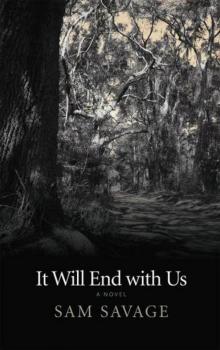 It Will End With Us
It Will End With Us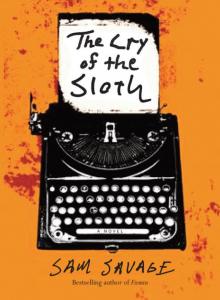 The Cry of the Sloth
The Cry of the Sloth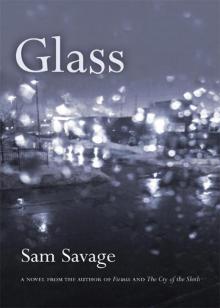 Glass
Glass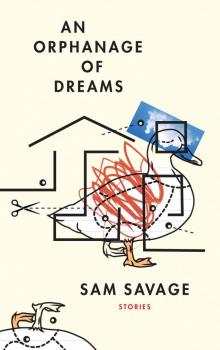 An Orphanage of Dreams
An Orphanage of Dreams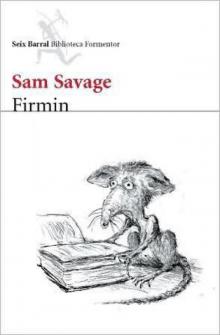 Firmin
Firmin Quantum Voices
Quantum Voices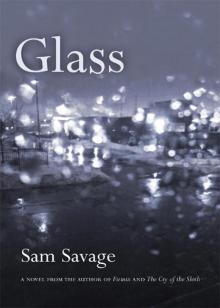 Glass (Small Press Distribution (All Titles))
Glass (Small Press Distribution (All Titles))